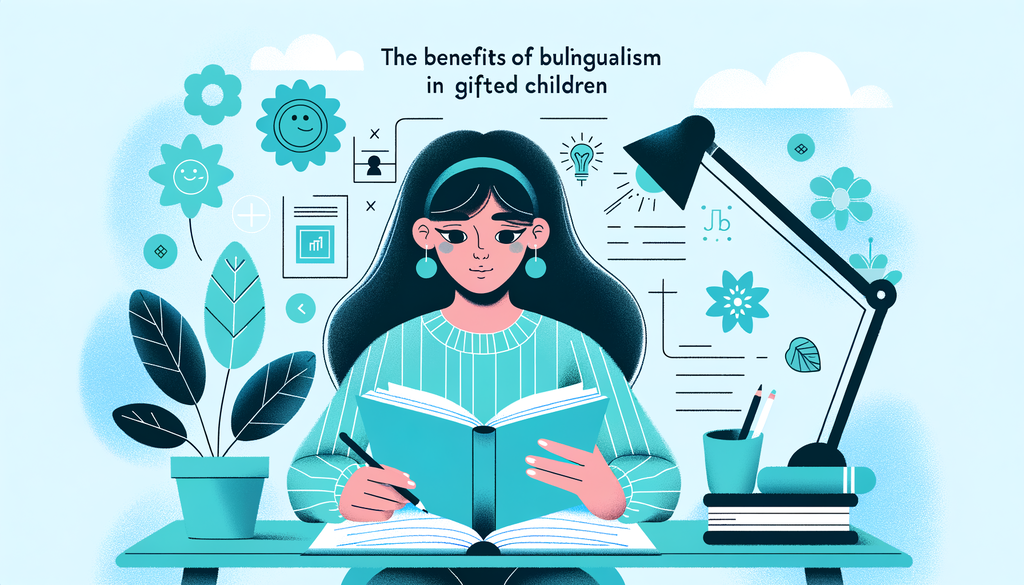The Benefits of Bilingualism in Gifted Children

In an increasingly globalized world, mastery in multiple languages is advantageous for many reasons. For gifted children, bilingualism can provide an extra cognitive edge, opening up new ways of thinking and broadening their world views. Here, we delve into the cognitive advantages of bilingualism in gifted children, providing ways to support their bilingual development.
Cognitive Advantages of Bilingualism
According to research, bilingual individuals often outperform their monolingual counterparts in several cognitive areas. These include problem-solving, creativity, and cognitive flexibility - skills that are often inherently strong in gifted children (source). Bilingual children show greater mental elasticity, providing them an opportunity to approach challenges from various viewpoints. For gifted children who already exhibit advanced cognitive abilities, this can expand their intellectual horizons and enhance their academic performance.
This cognitive flexibility also applies to social situations; one study found that bilingual children display better perspective-taking capabilities. This can support the socio-emotional development of gifted children, which we explained in detail in our “Socio-Emotional Growth for 2e Children: Strategies for Success” post.
Supporting Bilingual Development in Gifted Children
As parents and caregivers, there are different ways you can nourish your gifted child’s bilingual development:
1. Recognize and Encourage Interests
If your child shows an interest in a certain language, culture, or country, use this as a starting point for language learning. Encouraging their passions can lead to more engaged learning. We discussed this concept in our post “Discovering Passions: Alternative Pathways in Gifted Education”.
2. Expose Them to Multilingual Environments
Create opportunities for your child to hear and practice different languages. This could be through travel, social gatherings, or bilingual education programs. Our post on “Learning Through Travel: Educational Trips for Hands-On Experience” offers compelling ways to incorporate travel into education.
3. Use Technology
With a plethora of language-learning apps and websites available, technology can be a great tool. Make sure to use it wisely, balancing screen time with other activities, as we discussed in our post “Screen Time: Balancing Technology Use for Gifted Kids”.
4. Hire a Language Tutor
If resources allow, you might consider a language tutor who specializes in gifted education. They can tailor lessons to your child’s pace and learning style, keeping them challenged and engaged.
Navigating Challenges
While bilingualism can be highly beneficial, it’s not without challenges. Just like any learning process, there will be hurdles along the way. Gifted children may juggle language learning with other advanced classes, extracurricular activities, and the unique emotional aspects that often come with giftedness.
At times, gifted children might also become highly aware of their proficiency level and hold themselves to high standards, leading to frustration. In these cases, our advice on “Supporting Gifted Teens in Managing Stress” can be helpful. It is crucial to encourage patience and remind your child that language learning is a gradual process.
Final Thoughts
Bilingualism can bring numerous cognitive and social benefits for gifted children. By nurturing their bilingual development, we can empower these talented individuals with a significant skill that not only enhances their cognitive abilities, but also prepares them to be compassionate global citizens.
Stay tuned to our blog for more tips and insights related to gifted education and special needs. Subscribe to our newsletter to get the latest posts directly to your inbox.